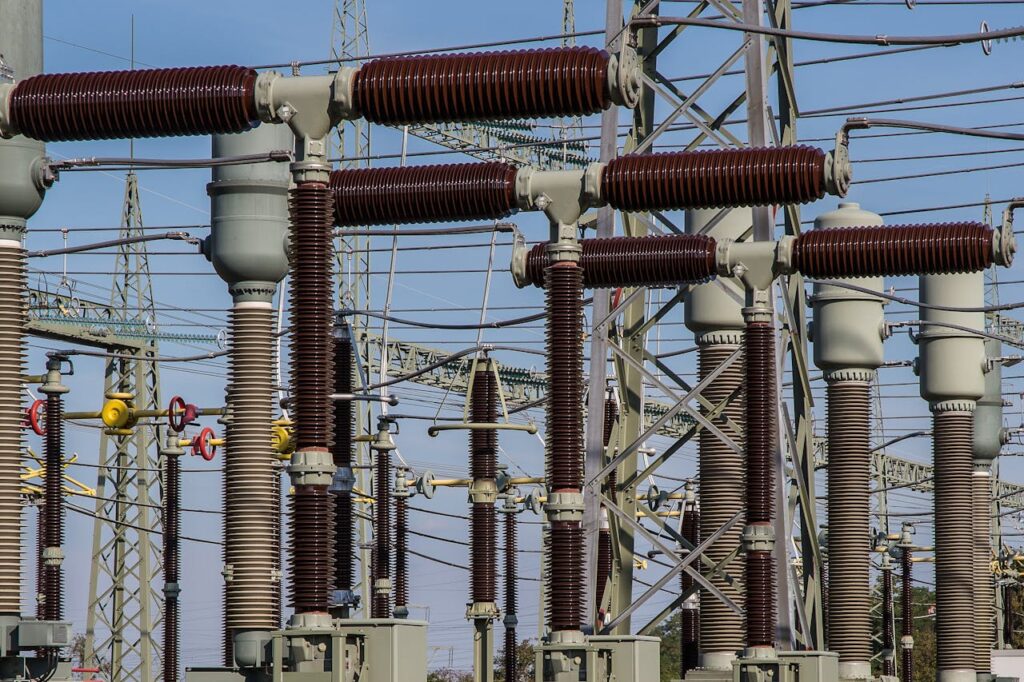Latin American utility stocks could offer an attractive investment opportunity for defensively oriented investors amidst increasing geopolitical instability and a declining macroeconomic outlook. Utility companies are integral to daily life by providing essential services like electricity, water, and gas, ensuring stable cash flows even during economic downturns due to the constant demand for these necessities.
Investing in Latin American utility stocks provides international investors advantages such as portfolio diversification, stable cash flows, high dividend yields, and low correlation with the market. Several large utility companies operating in Latin America’s megacities have stock listings in international markets. For instance, EDENOR provides electricity distribution services in Buenos Aires, and SABESP offers water and sewage services in São Paulo.
The defensive nature of utility stocks and geographical diversification could benefit an investment portfolio. This article will give an overview of the region’s utility sector, highlighting key players and the services they offer in the main markets of Argentina, Brazil, and Chile.
Diverse Investment Avenues in Latin American Utility Stocks
A utility stock represents ownership in a company that provides essential services for daily usage to the public, such as electricity, water, and natural gas. One may also regard telecommunication as a utility due to its increased importance in modern life. Although telecommunications plays a vital role in today’s society, this article will stick to utilities fulfilling basic needs.
Electric utilities are vital components of modern infrastructure, responsible for generating, transmitting, and distributing electricity to serve the diverse needs of residential, commercial, and industrial consumers. To ensure a reliable service, companies maintain a complex network of power plants for electricity generation, high-voltage transmission lines for efficient transport over long distances, and local distribution systems to deliver electricity to homes and businesses.
Gas utilities oversee the extraction of natural gas from underground reservoirs, its transportation through pipelines or liquefaction facilities, and its distribution to end-users, ensuring a steady and reliable supply of this energy source. Millions of Latin Americans rely on this service for heating, cooking, and powering various industrial processes.
Water utilities are essential in guaranteeing communities’ access to clean and safe drinking water. Water treatment is necessary to eliminate impurities and contaminants from water sourced from rivers, lakes, or groundwater before distributing it through a network of pipes to residences, commercial establishments, and public facilities. Additionally, wastewater treatment is essential for the safe disposal of sewage, thus safeguarding the environment.
Multi-utilities integrate the functions of electricity, gas, and water services, offering consumers a consolidated approach to accessing essential utilities. By combining these services under a single entity, multi-utilities streamline billing, customer service, and infrastructure management, providing convenience and efficiency for customers while ensuring the reliable delivery of multiple essential services.
Top Utility Stocks in Argentina
In Argentina, numerous utilities were previously under government control. A wave of privatization during the 1990s allowed private investors to obtain ownership stakes in these companies. Despite the privatization, the strategic nature of utilities left them susceptible to government interference, including political agendas and price distortions resulting from subsidies.
President Javier Milei intends to deregulate price controls to resolve substantial price distortions, allowing the market to dictate pricing. Market dynamics should lead to enhanced competition, forcing utility companies to improve their services through greater efficiency.
Most Argentine utility companies trading on the US stock exchange are electric utilities, providing services to the metropolitan area of the capital city of Buenos Aires.

Central Puerto S.A.
Ticker: CEPU
Listing: NYSE
Market Cap: $1.46B
Central Puerto S.A. is an Argentine energy company created in 1992 resulting from the privatization of government-owned Servicios Eléctricos del Gran Buenos Aires (SEGBA). Central Puerto is a major private company in power generation and installed capacity in Argentina, having a 12,6% market share in power generation by the private sector.
Its well-diversified portfolio comprises 13 power plants in 7 provinces generating energy through thermal, hydro, and renewable energy. Additionally, Central Puerto has investments in natural gas generation and distribution. According to its most recent 6-K Form, the company will explore opportunities in the mining market to diversify income and generate revenue through exports.

Empresa Distribuidora y Comercializadora Norte Sociedad Anónima (EDENOR)
Ticker: EDN
Listing: NYSE
Market Cap: $0.91B
Empresa Distribuidora y Comercializadora Norte S.A. (Edenor) is Argentina’s largest electricity distribution company, leading in the number of customers and electricity sold. Edenor also originated in 1992 following the privatization of SEGBA. The company holds the highest customer count in the country, accounting for more than 3.26 million customers. Its energy acquisitions contribute to 20% of the total national energy demand.
Edenor exclusively holds the concession for electricity distribution in the northwestern zone of the greater Buenos Aires metropolitan area and the northern segment of Buenos Aires. This region, covering approximately 4,637 sq. km, is home to around 11 million people.

Pampa Energía
Ticker: PAM
Listing: NYSE
Market Cap: $2.75B
In 1945, the company established itself in Buenos Aires as Frigorífico La Pampa. In 2005, Grupo EMES (formerly Grupo Dolphin), an Argentine private equity group, acquired the company to utilize it as their corporate entity for investments in Argentina. The company went public and changed its name to Pampa Energía S.A. to reflect its focus on the energy industry.
Pampa Energía has become a notable independent power producer in Argentina, known for having the country’s largest energy transmission network. Diversifying its interests, the company entered the gas and oil sector in 2009, further strengthening its asset base by acquiring Petrobras Argentina in 2016.
Top Utility Stocks in Brazil
Brazil boasts the largest electricity sector in Latin America, heavily relying on hydroelectricity to meet 60% of electricity demand. The country is thereby a leader in generating energy from renewable energy sources, the high reliance on hydro energy makes it vulnerable to energy shortages in times of growth.
The demographic distribution in Brazil is less centered around a single city, as is the case in Argentina. In Brazil, utility companies are more dispersed across the country. There is a privatization trend in the utility sector in Brazil, but ties with state governments remain strong.
Most Brazilian utility companies listed on the US stock exchange are electric utilities, except for Sabesp, which operates as a water utility.

Centrais Eletricas Brasileiras
Ticker: EBR
Listing: NYSE
Market Cap: $20.08B
Centrais Eletricas Brasileiras, or Eletrobras, is Latin America’s largest power utility company by capacity, generating 53,384 megawatts (MW) in 2023. Eletrobras was founded in 1962 by the government to support projects for building and operating power plants, transmission lines, and substations to meet the nation’s electricity needs.
Most of the energy generated by Eletrobras comes from hydro. Approximately 97% of its capacity comes from low greenhouse gas emission sources like hydro, wind, and solar. Eletrobras has become a global leader in producing clean energy, with a pledge to achieve net zero emissions by 2030.
Eletrobras was privatized in 2022 under the presidency of Bolsonaro with the expectations for improved efficiency to close the gap with private players. In a deal worth US$6.9 billion, 802.1 million shares were sold at a base price of US$8.56, leading to the Brazilian government’s voting stake dropping below 50%, currently 46.66% government-owned.

Companhia de Saneamento Básico do Estado de São Paulo (Sabesp)
Ticker: SBS
Listing: NYSE
Market Cap: $10.99B
Established in 1973, Sabesp operates the water and sewage services for 376 municipalities in São Paulo state, overseeing water supply, sewage collection, and treatment. Considered to be one of the largest sanitation companies in the world in terms of population served, it supplies 28.7 million individuals with water and offers sewage collection to 25.5 million.
Sabesp oversees about 30% of the investments in fundamental sanitation in Brazil. From 2023 to 2027, it aims to allocate roughly R$ 26.2 billion towards enhancing water accessibility and security while maintaining progress in sewage collection and treatment rates. There are plans to privatize SABESP and reduce the majority ownership of 50,3% of the state to a stake of between 15% and 30%.

Companhia Energetica de Minas Gerais (CEMIG)
Ticker: CIG
Listing: NYSE
Market Cap: $5.75B
Companhia Energética de Minas Gerais (CEMIG) is a major Brazilian energy company founded in 1952 to provide electric energy services in the State of Minas Gerais. The business operations revolve around generating, transmitting, distributing, and commercializing electric energy. Furthermore, CEMIG focuses on natural gas distribution and promotes energy efficiency through its subsidiary “Efficientia.”
CEMIG comprises 95 companies distributed over 24 Brazilian states, making it one of the largest integrated companies in the sector. The Minas Gerais State government holds a majority stake of 50.97% in common shares, granting it substantial influence over decision-making and operations. A strategic investment plan totaling R$42.1 billion aims to overhaul the company’s operations in Minas Gerais.

Companhia Paranaense de Energia (COPEL)
Ticker: ELP
Listing: NYSE
Market Cap: $6.11B
Companhia Paranaense de Energia, or Copel, is a Brazilian electric power facility generating, transmitting, distributing, and trading electric energy in the State of Paraná. The company was founded in 1954 and became the first Brazilian electric power company with shares trading on the New York Stock Exchange in July 1997.
Copel was privatized through a secondary offering of shares, raising US$1.05 billion. Before the offering, the Paraná government held 69.7% of common shares with voting rights and 31% of the total capital. Following the transaction, it retained around 27% of the voting capital and 15.6% of the total capital. The government no longer exercises control but still holds a significant stake as a major shareholder.

ENGIE Brasil Energia S.A.
Ticker: EGIEY
Listing: OTC
Market Cap: $6.65B
ENGIE Brasil Energia S.A. is a subsidiary of ENGIE, a Franco-Belgian conglomerate and a worldwide leader in independent energy production. ENGIE operates in over 70 countries and has a significant presence in electricity, natural gas, and energy services. In more than 20 years of operating in the Brazilian market, Engie has managed to double capacity and achieve growth in key financial indicators.
On January 10, 2024, ENGIE Brasil Energia sold a 15% stake in Transportadora Associada de Gás S.A. (TAG) to CDPQ to utilize funds to invest in new renewable power plants. The Group is committed to advancing the transition to a carbon-neutral world through energy efficiency and eco-friendly solutions.
Top Utility Stocks in Chile
Chile’s electricity generation profile encompasses a variety of energy sources, including hydroelectric, solar, wind, and natural gas. The nation’s electricity sector reform in the 1980s led to substantial private investment and served as a model for other countries.
Interconnected systems like the Central Interconnected System (SIC) and the Norte Grande Interconnected System (SING) guarantee efficient energy distribution across different regions. Ongoing developments in renewable energy projects reflect Chile’s commitment to sustainable energy practices.

Enel Chile S.A.
Ticker: ENIC
Listing: NYSE
Market Cap: $4.05B
Enel Chile S.A. is a subsidiary of Italian multinational Enel SpA, a global leader in energy, gas, and renewable markets. The company is Chile’s foremost electricity holding company, serving over 2 million customers in the Metropolitan Region of the capital, Santiago de Chile.
Being integrated into the global Enel Group, the company enjoys access to extensive international expertise. Its core activities revolve around electricity generation, distribution, and commercialization, prioritizing renewable energy sources like hydro, wind, and solar power. This strategic emphasis underscores the company’s commitment to sustainable energy.



